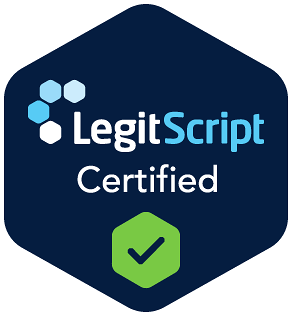Living with depression can feel like navigating life in the dark. But when substance use is added to the equation, that darkness deepens into a complex cycle of pain. That’s why offering dual diagnosis depression and addiction treatment care, is vital to any addiction recovery program.
For many individuals in San Diego and beyond, depression and addiction are intertwined. This connection is more common than most people realize. Fortunately, there is hope and healing through dual diagnosis treatment programs like at Amity San Diego.

What is Depression?
General Signs of Depression
- Persistent feelings of sadness or emptiness
- Loss of interest in hobbies, work, or social activities
- Changes in appetite (eating too much or too little)
- Sleep disturbances (insomnia or excessive sleeping)
- Fatigue or lack of energy
- Difficulty concentrating or making decisions
- Feelings of guilt, worthlessness, or helplessness
- Thoughts of death or suicide
These symptoms may vary in intensity and duration, but they can still significantly impact a person’s ability to function.
Types of Depression Disorders
The most common types of depression disorders include:
Characterized by severe symptoms that interfere with daily life and persist for most of the day, nearly every day.
A long-term form of depression where symptoms may be less severe but linger for two years or more.
The different types of bipolar disorder (including bipolar I, bipolar II, and cyclothymic disorder) feature periods of depression alternating with periods of mania or elevated mood.
A form of depression triggered by seasonal changes, most often occurring during winter.
Occurs after childbirth and includes symptoms more severe than temporary “baby blues.”
Depression doesn’t discriminate. It affects individuals of all ages, genders, and backgrounds. However, its interaction with substance use can make treatment more complex.
How Does Depression Interact with Addiction?
The Role of Self-Medication
For example, someone with untreated depression may drink to reduce anxiety or enjoy a more peaceful sleep. Eventually, they may need more alcohol to achieve the same effect. This eventually leads to physical tolerance and dependence. The same pattern can apply to opioids, benzodiazepines, cocaine, and methamphetamine.
Depression often distorts thinking, leading to denial and minimization of the problem. It becomes increasingly difficult to break the cycle without outside intervention. In some cases, individuals may not even realize they are using substances to self-medicate mental health symptoms until the addiction has already taken hold.
Signs of Addiction in People with Depression
- Using substances in larger amounts or over a longer period than intended
- Repeated unsuccessful efforts to cut down or control use
- Spending excessive time obtaining, using, or recovering from substances
- Neglecting work, school, or family responsibilities
- Continued use despite worsening mental or physical health
- Isolation from friends and loved ones
- Increasingly risky behaviors while under the influence, such as drive
This combination of symptoms highlights the need for integrated care that addresses both disorders simultaneously.

What is Dual Diagnosis Treatment?
Why Treating Depression and Addiction Together Matters
Dual diagnosis treatment recognizes the intricate connection between mental and behavioral health. By treating both disorders concurrently, clients experience a more complete and lasting recovery.
In dual diagnosis care, there’s frequently an emphasis on uncovering the root cause behind both the mental health condition and the addiction. This might involve exploring past trauma, relationship dynamics, or undiagnosed disorders. With the right tools and support, clients can begin to reclaim their lives with a clearer understanding of themselves.
Treating both depression and addiction simultaneously can help restore a sense of identity. Many individuals feel fragmented and disconnected from who they truly are due to years of struggling with both depression symptoms and addiction. Through dual diagnosis treatment, clients often rediscover their strengths, values, and passion. This can lay the groundwork for a purposeful and connected life.
Therapy for Depression and Addiction
Helps individuals identify and change negative thought patterns that contribute to both depression and substance use.
Focuses on building emotional regulation, distress tolerance, and interpersonal effectiveness.
Encourages internal motivation for change and may help clients resolve ambivalence about treatment.
Many individuals with dual diagnoses have a history of trauma. Our clinicians work with clients to process unresolved trauma in a safe, supportive environment.
Facilitated peer support provides shared understanding and reduces feelings of isolation.
Involving loved ones in the recovery process by way of family therapy can strengthen support systems and improve outcomes.
Every client at Amity San Diego receives an individualized treatment plan that includes a mix of these therapeutic modalities, tailored to their personal history and recovery goals.
Holistic Support for Whole-Person Healing
- Mindfulness and meditation practices
- Yoga and fitness programs
- Nutritional counseling
- Art-based therapy
- Nature walks and outdoor activities
These integrative services play a vital role in helping clients regain balance, reduce stress, and cultivate inner peace.
As part of treatment, we emphasize building life skills for long-term resilience. This includes developing healthy coping mechanisms, improving communication, setting boundaries, and learning time management and self-care. When clients feel empowered and equipped to handle life’s challenges, they are less likely to turn back to substance use.
Clients can also benefit from relapse prevention planning, ongoing aftercare support, and alumni networks that reinforce the importance of staying connected. Recovery is not just about abstaining from substances, but creating a lifestyle that supports mental health, emotional well-being, and personal growth.
Receive Depression and Addiction Support at Amity San Diego
At Amity San Diego, we understand the unique challenges of living with co-occurring disorders. Our compassionate, experienced team is here to walk beside you every step of the way. Through individualized treatment plans, evidence-based care, and a community of support, we help clients move from survival to thriving.
If you’re ready to break free from the cycle of depression and substance use, Amity San Diego is here to help. Our admissions team is available to answer your questions, verify insurance, and guide you through the next steps.
Contact us today to learn more about our dual diagnosis treatment program.
- https://www.drugabuse.gov/
- American Psychiatric Association. (2013). Diagnostic and Statistical Manual of Mental Disorders (5th ed.).
- https://www.samhsa.gov/
Verify Your Insurance
We understand that navigating the financial aspects of treatment can be challenging. Amity San Diego is here to help. Our team works with many insurance providers to make treatment as accessible as possible. Click below to verify your insurance and learn more about your coverage options. Our admissions team will guide you through the process and answer any questions you may have.








